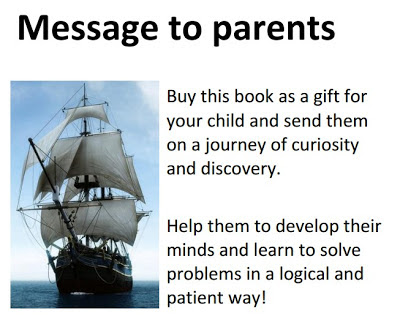Dear Mr. Tan
After my youngest son goes to army, I suddenly find I have some free time on hand. All these years of working for the children, setting aside funds for the rainy days, building a home (not exactly in that order), it is a relief to be able to sit back and see how I can improve my financial position.
For years, my husband and I blindly bought into properties and stocks and every time there was nagging fear if it was a good buy. We are good for falling in love with whatever we buy, good or bad. So the market goes up and it comes down and we go with the flow. So you can guess our financial situation. We have enough to get by but not what you will term as affluent.
Last few months, I decided to start my financial education journey.
First, I bought a few books by Robert Kiyosaki/Kim (his wife)/Donald Trump. The teaching is quite different from Warren Buffett. Some of what Robert writes are obviously not suitable for Singapore especially pertaining the tax laws. I am still puzzled how he can leverage so much and the banks are not calling for top up when the property prices drop. Know of anyone who was so confident that he sold his house and use the money to buy into many properties just before the recent market crush?
Warren is usually buy and hold or until he thinks the business no longer suits him. Robert is buy and sell and move on. I believe both techniques can be applied to maximize the gain. I do know of someone who do this.
I went to a preview by a company that teaches value investing. The cost for the course is >3K. The course also teaches options (what Robert K and Warren B are good at). This options trading is available for US stocks not Singapore. The lecturer is energetic and fun. But I think this is too much to pay.
I also attended the SGX course preview on “creating a secondary income stream – through long term shares investing & investing in real estate sector (property stokcs/RETIS). It was a good course and the cost for 12x3 hrs is affordable. With FA/TA course thrown in. The course basically teaches fundamentals like time value of money/economic/financial statement/business/industry analysis and investment principles. I signed up for my husband, my daughter and myself. I believe opportunities are aplenty but we must be armed and shielded with knowledge in order to grasp these opportunities. I hope I will be confident the next time opportunities come knocking at the door.
The SGX course on “making trading your source of income” preview is an eye opener. This is really a short term investing for cash flow. The lecturer delivered a good clarity in the concept. However, I do not think this is the right tool for me. This is too fast paced for my heart.
I then went for a talk by Philip Capital “How to Profit CONSISTENTLY in Stock Market” where a CK Ee from Asia Charts delivered his speech. Ee was fun and he got the whole room (must be more than 100+ attendees on a Saturday morning) laughing with glee. He is very knowledgeable and obviously he walks the talk. He is realistic and warned the audience that there will be bad and good days. But important to learn from it all and keep a journal. He teaches discipline and urges investors to have good understanding of market behavior (the interpretation of news), a good plan (to accurately analyse the market) and when to enter and exit. He trades for cash flow and capital gain. If I have a chance, I will like to join his course.
I went to a preview on swiftlet farming. The trainer showed the swiftlet migration path, Malaysia, Indonesia etc. The business idea is quite interesting. Basically they work with locals and hopefully some research institutions and wholesaler. The swiflet farm is in Sandakan, Sabah. The investors buy the wooden huts and the local will help to maintain and harvest the bird nests. It will take a few years to have returns which is not guaranteed. The consortium will buy the bird nests and pay the investors based on market price. The consortium is hoping to link up with some research institution to give some credibility to the bird nest harvested from Sabah due to the recent clam down by China due to contamination. I find this venture a bit expansive and not certain. The wooden huts are sold at a premium to the investors. One is never sure if the birds will really nest in your huts. As the areas are not really easily accessible, one has to depend on the consortium management to ensure no thefts. At the end of the day, the price of the nest is a question mark. The plus points are that the consortium delivers the huts and management the scheme and buy the nest from you. Unless of course, you prefer to consume yourself, but will be hours of back breaking tasks to pick all the down feathers.
I went to two property courses preview. One is “how to invest in property with little risks” by Azea Property Investment. The trainer was fun and knowledgeable. Basically the concept is similar to Robert Kiyosaki/Donald Trump - investing for cash flow. Some of the properties showcased are impressive. The lady boss Tan Yang Po is well known. She is featured in 938 live. From what I know listening to her via 938 live, she basically has the muscles (together with the students who turned investors) to negotiate for good deals. I do believe the model works. She gives much better value than some of the investments brought to Singapore – “3 properties in USA for 200K!” shouted the advertisement in the Straits Times some months ago. The course is attractive from networking and the opportunity to buy into some of the below the water properties. There are aplenty such properties in US and EU. But the skill is to sniff out the good buy and rental generating properties. I am impressed by two buys – one in London and the other in US near the university. However, one has to consider that these are oversea properties. My preference is still to be able to see my investments whenever I want to.
The other property course preview is none other than ERC – Andy Ong. I went to one of Andy’s course in 2007. I find him genuine and willing to teach and help. He is astute in property investment. Around 2007, he bought into River Valley property to be used as class rooms. Recent years, see him investing into commercial. His portfolio is impressive to people who know his background. I first heard of him when I took up financial planning course years ago. At the time, one of the text books specified by FPAS is by him. I like to reconnect with him and I believe there is much to learn from him.
Then the latest course I went to is by Sam Goh “ A - Z of Investing - Gold & Silver”. The reason I went is that Robert K has been talking a lot on gold and silver. With the delink of currency from gold, and the QE infinite, who will not be worried? USD is on the slippery slope to don’t know where and every government is printing money. There is only one way for commodity to go – up. I cannot buy and take delivery on oil/coffee/tea/nuts etc. The only commodity is then gold/silver. At 25 and be financially free is impressive. There must be something I can learn from Sam. The talk content is what I expected. I learnt something new. I can actually buy and silver and gold from UOB and I do not have to take delivery but just use the passbook. I joined his club membership.








